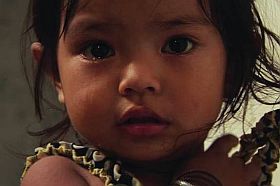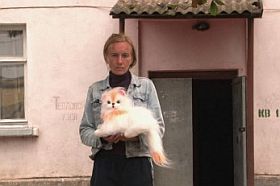


Cinedoc Tbilisi/ 6/ Awards
The 1st International Documentary Festival in the Caucasus is going towards its end. Today the awarded films – and others – are being screened and last night the award ceremony took place in the Rustaveli Cineme. I was member of the jury of the International Competititon together with film critic and festival programmer Victoria Belopolskaya (Russia) and EDN director Paul Pauwels. The decisions of the international jury are to be found below.
Another jury consisting of Petr Kostorhyz (Czech Republic), Lela Ochiauri (Georgia) and Marina Drozdova (Russia) gave the main prize in the Focus Caucasus section to The English Teacher, directed by Nino Orjonikidze & Vano Arsenishvili (Georgia).
The catalogue description (taken from the website of the production company) of this fine film goes like this:
Young, adventurous “English teacher” is assigned to carry out a “linguistic revolution” in a remote Georgian village. Looking for new adventures, South African Bradley Nelson finds himself on the frontier of a big political change in the country. In order to get rid of the Soviet legacy and engage with the western world, the government initiates a project to “invade” Georgia with English speakers. Excited traveler is determined to contribute to a “radical change” in the small post-Soviet country. But when the first wave of excitement disappears, he is confronted with the gloomy reality. There are no signs of revolutionary changes, and in fact, no desire to change at all. Villagers are facing completely different set of challenges…
The Audience Award went to “Songs of Redemption” by Amanda Sans.

